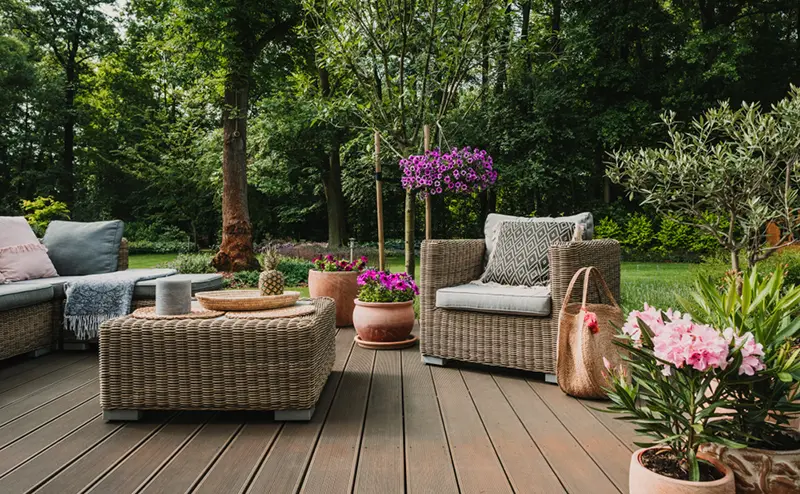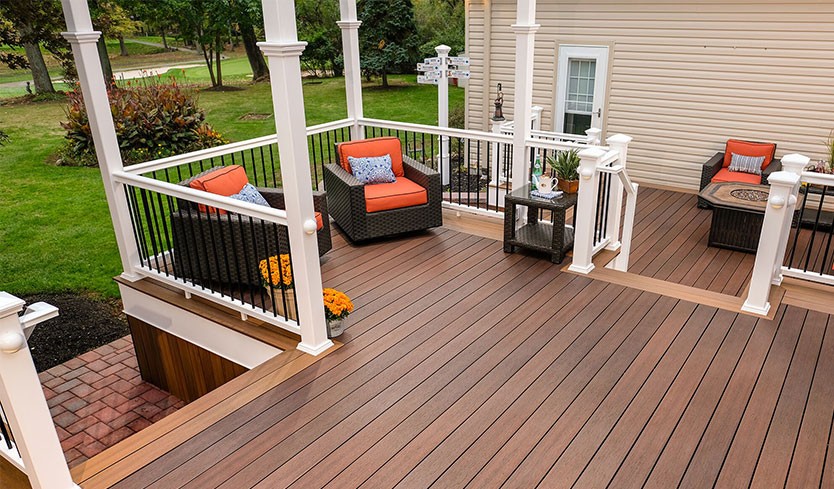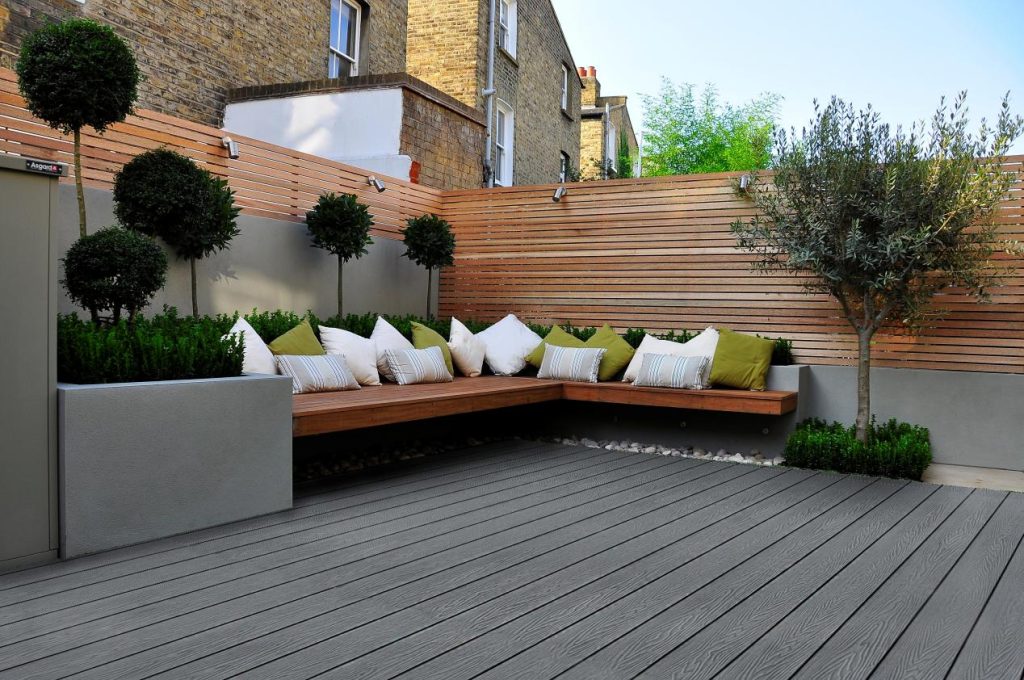If you’re considering building a brand new composite deck in the spring, then you might be faced with this choice – floating or fixed? In this article, we will explore the pros and cons of each so you can decide which type of deck is the best choice for your home.
What is a floating deck?
A floating deck, also known as a ground level or freestanding deck, is a deck that is not attached to any building or structure. It is a standalone structure that is built on top of the ground and is not anchored into the ground like a traditional deck.
This means that it is not connected to the foundation of a house or other building and is not supported by in-ground concrete piers.
Instead, it is supported by preformed concrete blocks, called deck blocks, which are placed on the ground and support the weight of the deck. Floating decks are a popular option for homeowners because they are relatively easy to build and can be placed anywhere on the property, regardless of the terrain. They can be used as a standalone structure or as an addition to an existing patio or outdoor space.
What is a fixed deck?
A fixed deck is physically attached to the building (your home, for example).
What are the benefits of building a floating deck?
Building a floating deck using deck blocks can be a great alternative to a traditional deck that is attached to a building or anchored into the ground using in-ground concrete piers. Here are some additional points to consider:
COST
Deck blocks are generally less expensive than using in-ground concrete piers. This is because they do not require any digging or excavating, and the materials required are minimal. In addition, you will not need to purchase concrete mix and other supplies needed for in-ground piers.
RISK
If you’re building in ground concrete piers, you risk hitting underground services such as water pipes, sewage pipes and electrical cables. Having these repaired by the local council can be extremely costly. By building a floating deck it removes this risk entirely.
TIME
Building a floating deck with deck blocks is generally a faster process than using in-ground concrete piers. This is because the blocks are preformed and ready to use, and do not require any curing time like concrete does. In addition, the process of installing the blocks and decking boards is relatively simple and can be done in a few hours, depending on the size of your deck.
EASE OF USE
Deck blocks are easy to use, even for someone with limited construction experience. They are simple to install and do not require any special tools or equipment. Deck blocks allow you to alter the build slightly as you go, and gives you room for error.
PERMIT
Floating decks may avoid the need for council approval. In general, building a small floating deck in your backyard is considered a minor home improvement project that may not require a permit. However, it is always a good idea to check with your local building department or council to determine if a permit is required.
In some cases, a permit may be required if the deck exceeds a certain size or height, or if it is located in a flood zone or other regulated area. It is important to obtain the necessary permits before starting any construction project to ensure that it is built to code and to avoid any potential fines or legal issues.
To find out if a permit is required for your project, you can contact your local building department or council and provide them with details about the size and location of your proposed deck. They should be able to tell you if a permit is required and provide you with any necessary forms or information.
RELOCATING
Because the deck is not fixed to the ground, it’s fairly easy to de-assemble and transport compared to a traditional deck. This might come in handy if you’re living in a temporary home or moving.
DAMAGE TO VEGETATION
Digging holes and filling them with concrete can damage tree roots and vegetation. If you’re building near to existing trees and plants, then avoiding the need for concreted holes can preserve your garden.




